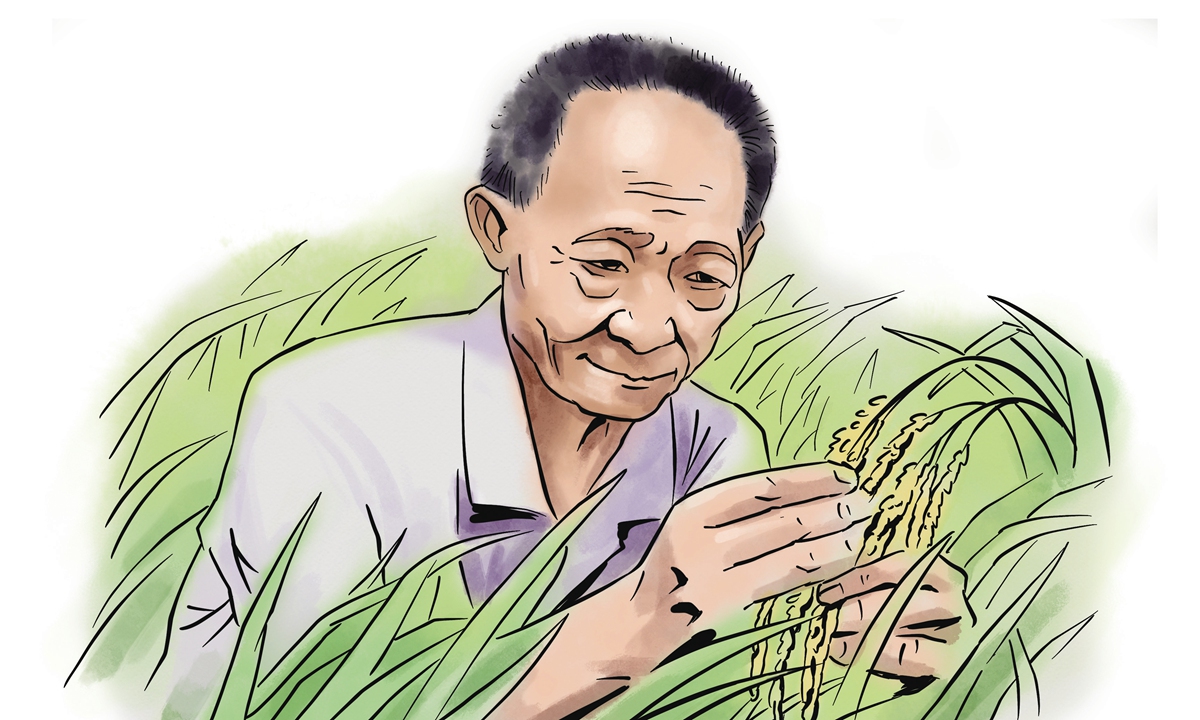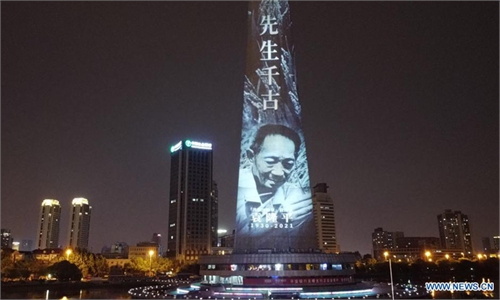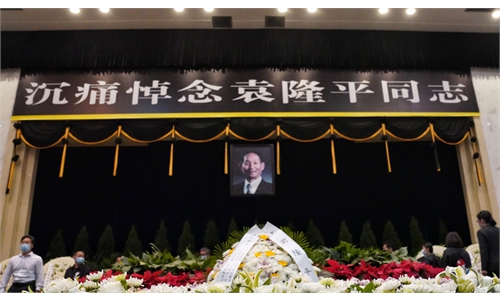Yuan Longping legacy shows the West needs to change mind to better know China

Yuan Longping. Illustration: Liu Rui/GT
Lots of foreigners don't understand why so many Chinese people are sorrowful about the death of a 91-year-old man. Some have asked: Who is Yuan Longping?This reminds me of a hotly discussed issue more than 20 years ago. At that time, I was a Chinese correspondent in the US and interviewed some American scholars about China's development. Most of them raised the food issue. In their eyes, China, as such a populous country, could hardly realize food self-sufficiency.
Their views coincided with US ecology economist Lester Brown. In 1995 Brown's book Who Will Feed China? Wake-Up Call for a Small Planet was published. He later published another book titled, Eco-Economy. He believed that China would experience food shortages, because of the limited amount of water resources, decrease of agricultural land due to industrial expansion and the fast population growth.
It was exactly at this time Yuan became a well-known figure in China. In August 1995, Yuan announced breakthroughs in the two-line system of hybrid rice breeding after nine years of research, and brought this technique to large-scale application. The annual plantation area reached 15 million hectares, accounting for 50 percent of all rice plantations nationwide. The annual growth of rice could feed a population of 60 million - equal to the whole of the UK.
China's grain output increased to 669.5 billion kilograms in 2020, up from 113.2 billion kilograms in 1949. The China Agricultural Sector Development Report 2020 showed that in 2019, the self-sufficiency rate of China's three major staple grains (rice, wheat and corn) reached 98.75 percent.
The size of farmland did not increase during this period. In fact, it declined some. Yet grain output increased significantly. The increased output can be used to plant other crops and improve the food structure or develop industries and transportation. Shenzhen, a city of innovation, was built on farmlands.
Western scholars' prediction of China back then was indeed analyzing China's problems, but they failed to realize that the Chinese people have the capability to solve these challenges.
If they had any knowledge of Yuan or other Chinese researchers who have worked dedicatedly in various fields, they wouldn't have made such pessimistic evaluations. Moreover, this would have thrown cold water on the "China collapse" theory that has now become popular in the West.
Of course, Western scholars shouldn't bear the full blame. After all, their worries about the Chinese people's food and clothing were based on historical experiences. Their understanding of China was often confined by their own experience, and the stereotypes of history and tradition.
Anyone who has some knowledge of Chinese history would know what food and clothing mean for the Chinese people. The frequent great famines represent an indispensable chapter in Chinese history. In children's books published in the US over the past two or three decades, Chinese people were depicted as pale and thin. This demonstrates their limited understanding overall.
And perhaps, they were shocked to learn that the 5G technology they were going to use is led by a Chinese company called Huawei. It was only then that they realized that their predictions about China had fallen flat.
How did Huawei make it so big? Behind Huawei are tens of thousands of people who are working as hard as Yuan. They are unknown and ordinary people. The Chinese people commemorate Yuan, and they honor the generation of scientists represented by him. They pay tribute to their innovative and struggling spirit.
In this light, it is time to change minds to better understand China. Why did the Chinese people make it to success? Why are so many predictions about China in the West inaccurate? Why is the "China collapse" theory still popular in the West?
The author is a senior editor with People's Daily, and currently a senior fellow with the Chongyang Institute for Financial Studies at Renmin University of China. dinggang@globaltimes.com.cn. Follow him on Twitter @dinggangchina




